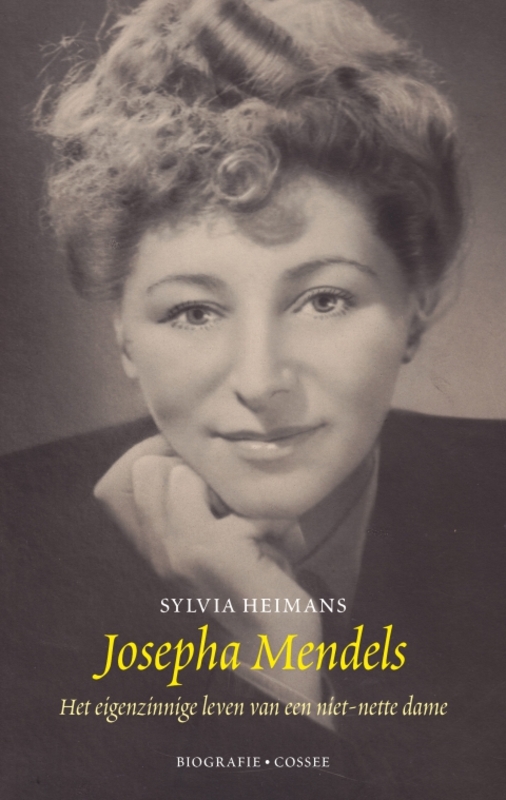
At school she was a fierce child with the nickname ‘wild Josje’, she became a woman with little regard to bourgeois morals. She was just as autonomous as an author and praised for her spirited female characters. This biography is a wonderful portrait from a versatile woman, both an extraordinary human and an unique author. Sylvia Heimans was the first to gain access to Josepha Mendels’ personal archives and uses the years she spend on research to paint a broad picture of a remarkable woman.
Mendels was a shining example for many modern women who were struggling with their identity and expectations after the sexual revolution of the 1960’s. How to escape the forbidding corset of marriage and family life? How to develop your talents and fight for your autonomy as a emancipated woman and still lead a complete life including erotica, love and perhaps a motherhood.
Josepha Mendels grew up in an orthodox-Jewish family at the beginning of the twentieth century. But she had a hard time to find her own voice. She started writing when she was a governess and left rigid Holland to move to Paris to be free at age 34. She would become a renowned author after WWII, crowned but also maligned.
Mendels is a flamboyant personality but her spirited character has a deep and sad history. Having lost her entire family during WWII cast a shadow on both her success and all of her life.
But she did succeed in freeing herself from her orthodox youth. She was the lover of the beat poet Simon Vinkenoog after the war and a friend of author Anna Blaman. She became famous and honored as an author for her strong, independent female characters. And Josepha emphasized that she wasn’t part of any group. Not Jewish, not feminist and not just an author. ‘Society will not dictate me into doing or being anything. I will only do whatever I want to do. I will die a not so decent lady.’
Who is this remarkable woman who conquered the expectations of her surroundings and chose a new path? Who defied all standards to become one of the first unmarried mothers on her own choice? Who made her debut as an actress at age seventy-two and stood scantily clad at the stage of a Paris theater?